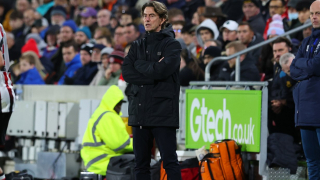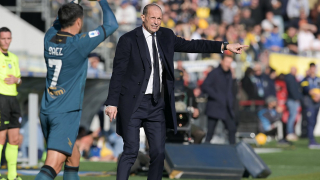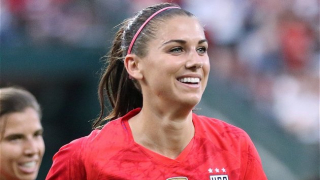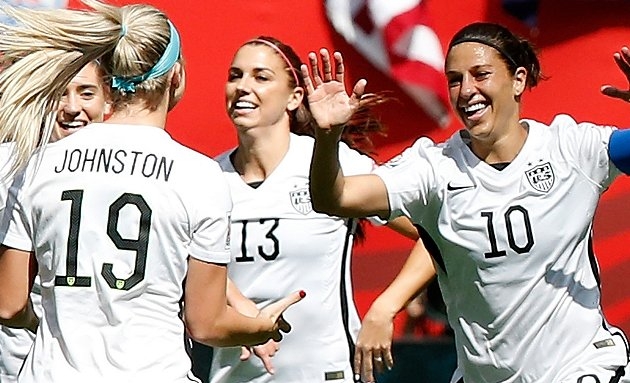Trinidad and Tobago launched a Women's Premier League (WPL) this past July that, though purporting to support the growth of the women's game throughout the Caribbean, was seen as more of a business and a political exercise, particularly since it ran concurrently with the Trinidad and Tobago Football Association's (TTFA) main league for women.
The TTFA-organized Trinidad and Tobago Women's League Football (WOLF) runs in a May to August window and thus the WPL competed with rather than supported the existing structure.
PROBLEMS FROM THE START
The Sports Minister at the time, Brent Sancho (who played for T&T in the 2006 World Cup and professionally in Scotland, Trinidad and the U.S. after time at Essex Community College and St. John's University, where he was on the NCAA Championship team in 1996) was behind the enterprise. The Women's Premier League's stated mission was to: "provide a platform in T&T for football that is high-quality, entertaining, promotes social values and encourages the participation of women and girls in sport. It is not a professional league but an international tournament comprising national, club and college athletes from Trinidad and Tobago, the Americas and England."
The WPL involved T&T national team pool players (stripping them from the national league) as well as imports from Barbados, Brazil, Canada, Colombia, Jamaica, Paraguay, St. Kitts/Nevis, St. Vincent and the Grenadines, the U.K. the U.S.A., U.S. Virgin Islands and Venezuela. The international players stayed at The Chancellor Hotel in St. Ann's for the entire two month period. Caribbean Airlines was also a sponsor as was the Shanghai Construction Group.
The venture immediately ran into controversy over its name, which first had professional in its title (Women's Professional League); a potential problem for the National Collegiate Athletic Association in America since so many players throughout the Caribbean play in stateside colleges and the NCAA closely scrutinizes their offseason play. If the NCAA deemed that the league was fully professional, it could prevent the players from participating with their college teams, costing them scholarship funding.
Next the word 'league' became problematic. Kevin Harrison, the advisor to Sport Minister Sancho, explained: "We were advised by the TTFA that, if it was a league, it would cause problems with transfers and registrations and so on. So it is a tournament. It is semantics really… [TTFA General Secretary] Sheldon [Phillips] told us it would be a simpler way of doing things."
One wonders why the Sports Ministry was working in opposition to the TTFA's existing league but seemingly gained strategic advice from said national governing body.
Despite the glowing press releases, many saw the enterprise as more of a gimmick and a business than anything of long-term benefit. Veteran Trinidadian Football Writer Lasana Liburd, the CEO and Editor of Trinidad and Tobago website Wired868.com and a contributor to World Soccer, the UK Guardian and Trinidad Express, wrote about the issue of a league versus a tournament and the fact that a government entity setting up a league is counter to FIFA's rules preventing any government dictating to a federation, particularly in a situation where it threatens an existing national league.
The Women's Premier League had six teams: Angels, CNGC Rush, Wave FC, Dragons, Fuego, Petrotrin Oilers.
The national team players were assigned to the different teams through a draft and Fuego, led by experienced professional forward (U.S. and Sweden) and T&T international Tasha St. Louis, won the title.
THROWN TOGETHER
Along with the core of the T&T National Team, other top players included Shakira Duncan of Jamaica (formerly with the University of West Florida) and Jaclyn Poucel of the U.S. (a graduate of the University of Pittsburgh who played for the Boston Breakers Reserves in WPSL and recently signed for NiceFutis in Finland). One Trinidadian administrator who was very familiar with the tournament said that for some of the other imports from some of the smaller Caribbean nations and the South Americans: "It was a bit of getting bodies—any bodies."
Forward Alyssa Budhoo (a Canadian who played for Guyana) played with Angels, is a merchandising coordinator for Rexall Pharmacy Group in Toronto, a youth coach in Ontario and played at Cape Breton University in Nova Scotia. Two months in Trinidad was a great opportunity for her, but she is certainly not a professional or even full-time player at home.
In a telephone interview with tribalfootball.com, Liburd labeled WPL as more of a tournament than a league, and more of a political exercise than a serious attempt to further the women's game in the Caribbean.
Liburd said that Minister Sancho went his own way without a serious regard for the long-term growth of the sport: "Instead of putting resources to help the existing tournament [league], he created his own business."
Liburd did find that overall things went "fairly well." Liburd explained: "I thought the standard was as good as you could expect because it was put together so hastily and there was no preseason. In some cases the coach met their players two days before the first game."
After the recent national elections, there was a change in government and Sancho is out as Sports Minister. Liburd said that the result of the election for women's football is that: "There is nothing in place to ensure continuity. I would be surprised if there was any. The only way to really help the women's program is to help the existing competition…The government to me has no business trying to run its own competition."
The WPL sounded good in concept at the outset, a franchised league of six teams with a centralized marketing and sponsorship structure, and a draft to distribute the top players among the six sides. One Caribbean women's soccer coach felt that they should have paid an administrator—a key need throughout the region--instead of the players, who all received a monthly stipend. The tournament could have been a key boost to the national team, still dealing with the heartbreak of losing out on a World Cup spot in Canada to a last minute goal by Ecuador in Port of Spain in the two-leg intercontinental play-in series last winter.
That series defeat was surprising and gut-wrenching for the players, coaching staff and administrators. However, the Caribbean soccer coach said: "It would have probably done more damage if the team had qualified for Canada with the chaos of the qualification campaign," including having to go online for funding help when the federation's promises to help the team didn't materialize.
WHERE'S THE MONEY?
Haiti's national team donated $1,300 to help Trinidad get through training ahead of the Gold Cup, which doubled as the regional World Cup qualification tournament. Many found it odd that one of the poorest counties in the world provided help to one that has oil resources and a solid financial footing, but its a federation that many times has trouble managing its funds and organizing their national teams. The Caribbean coach felt that the federation has to improve the structure and consistent support for women's soccer.
Houston Dash (NWSL) head coach Randy Waldrum is still the head coach of Trinidad and Tobago's women's national team, though the only major tournament on the horizon is Olympic Games Qualification next February (interestingly to be held in Houston and Dallas) but with only two spots available, the U.S., Canada and possibly Mexico are the most likely to be on the plane to Rio.
Liburd quoted the Gospel: "No one can serve two masters. Either you will hate the one and love the other, or you will be devoted to the one and despise the other."
Though Matthew was talking about serving God and money, there are parallels here for Waldrum having two bosses and giving his full attention to both. Some football people in Trinidad and Tobago are concerned about the split loyalties.
Between the first and second legs of the Ecuador series--a period of three weeks--Waldrum went back to the States rather than keeping the team in a camp and training with them. There is some dissatisfaction with Randy's preparations for the important playoff and with his team selection. Liburd felt that the team that narrowly lost to Ecuador: "was solid in defense but ad-libbed in attack, seeing if Ahkeela Mollon [who played at the University of South Carolina and professionally in Sweden] or Kennya Cordner [who played with Seattle Reign in NWSL and Brisbane Roar in Australia] can pull out a goal as opposed to something a little more structured; perhaps that would have come with more preparation time."
Some believe that Kayla Taylor, who plays in Texas at Wiley College, would be an asset to the side, since she is, according to Liburd: "a really good dribbler and penetrative player."
Repeated calls to Randy Waldrum to comment for this story were not returned. In short, Liburd feels that: "Women's program in Trinidad has a lot of issues."
With such a turbulent summer, T&T have a short time to correct things before February's CONCACAF Olympic Qualifying Tournament. That tournament will be an important barometer for T&T's future direction for their women's program.



























